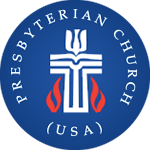
“I asked him if he was surprised to see me. He said yes. I believe this is something God would do. God has great compassion for the people.”
About Us
Our Mission Statement
We strive to be a faithful, open and inclusive congregation. We will care for our congregation by encouraging each member to commit to a regular practice of spiritual growth and worship, participation in some group, role or ministry in the life of the church, supporting the church financially and providing friendship and support to others in the congregation.
We welcome all who are seeking to live a life of Christian faith and discipleship with a warm and caring attitude and will nurture new members by helping them to feel at home and to take ownership in the church. We are a diverse people united by a common faith in Jesus Christ and by meaningful worship and service.
We will respond to the changes in life styles and demography by instituting forms of worship that will appeal to youth and our changing neighborhood. We will minister to the community in which we live by continuing to provide programs and space to educate, serve and share the good news of the Gospel. We will partner with other Presbyterian churches in worship and in programs for youth, adults and the community at large.
The Protestant Reformation and the importance of John Calvin.

John Calvin
Credit: Encylopedia Brittanica
Born in the quaint town of Noyon, France in the early 1500's, John Calvin was an educated man and became one of the most influential figures in in the Protestant Reformation. John studied the several languages that proved to be key in forming his religious and biblical perspectives. He studied at prestigious schools such as The University of Paris, Orléans and Bourges. John Calvin studied not only the priesthood but also Law and the languages of Hebrew, Greek and Latin. Presbyterians attribute much importance and origins to John Calvin`'s thoughts and teachings of the Protestant Reformation. His study and thoughts on Christianity is also referred to as "Calvinism". After moving from France to Switzerland, John Calvin also lived in England and Germany which allowed him to share his writings and spread his reformed way of thinking to others throughout Europe. John Calvin's influence was very impactful in religion and spirituality around the world and much of his teachings can be found and taught in various Christian organizations.
The fundamental idea of Calvinism is Predestination, or the belief that God's rewards for all his children have already been chosen. Often wealthy Christians of this era used this philosophy to justify their wealth and treasure as ordained of God and not to be interfered with or diluted by high taxes.
Eventually many European Presbyterians immigrated to America and established their first church Philadelphia, Pennsylvania in 1706. In later years, the Presbyterians were thriving and many becoming more influential in the beginnings of the United States of America. In 1789 the first General Assembly was organized under Reverend John Witherspoon, who coincidentally became one of the religious figures to sign the Declaration of Independence.
One of the most quoted Bible Verses in Presbyterian Churches is Luke 23:42.



